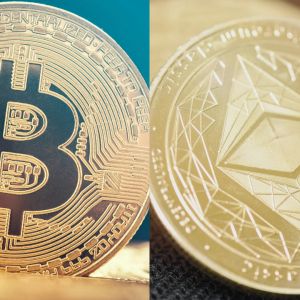Multicoin Capital has proposed SIMD-0228, which is expected to transition the Solana network’s current token emission model to a variable-rate system. The proposal aims to reduce inflation. SIMD-0228 introduces a market-oriented solution that fluctuates based on the staking participation rate, which is calculated by dividing the amount of staked SOL. Assuming the staking participation rate falls below the recommended target of 50%, new token issuance will increase to reward stakers and validators and secure the network. In reverse, if the participation rate exceeds the target rate, token issuance is restricted, and the inflationary rate is cap-capped to limit the rate at which new tokens are minted. Tokenomics and inflation continue to challenge distributed cryptocurrency networks, sparking ongoing debates about the best incentive models. Solana validators approve proposal to redirect priority fees Mid-last year, Solana validators voted to approve another proposal, SIMD-0096, which removed the 50% burn mechanism for validator priority fees over the network and allowed 100% of the fees to be allocated to block producers. This proposal aimed to improve incentives around how validators receive priority fees, helping with network security. SIMD-0096 was expected to eliminate possible side deals between block producers and transaction submitters, improving incentives within the validator system. The original proposal stated . This ensures that validators are appropriately incentivized to prioritize network security and efficiency, rather than being incentivized to engage in potentially detrimental side deals . SIMD-0096 proposal Critics of the proposal warned that removing the protocol’s 50% fee-burning mechanism to incentivize validators would raise SOL’s inflation rate. This inflation would benefit validators; however, SOL holders who choose not to stake could face the negative effects of inflation eroding their holdings. Though the proposal received a 77% approval rate, SIMD-0096 has not yet been implemented on the Solana mainnet at the time of this writing. 65% of SOL is staked, with Jito’s MEV rewards exceeding $100 million Data from StakingRewards shows that approximately 65% of SOL’s circulating supply is currently staked. Jito — a Solana-based maximal extractable value (MEV) block-building solution — surpassed $100 million in tips in December 2024, offering an additional income stream for validators. The advocates of adjusting Solana’s token emissions argue that validator rewards gained through maximal extractable value are sufficient incentives for validators to secure the network. According to proponents, these MEV-based incentives reduce the necessity of allocating 100% of priority fees to network validators and are considered preferable to the risk of increasing SOL’s inflation rate. Land a High-Paying Web3 Job in 90 Days: The Ultimate Roadmap



















